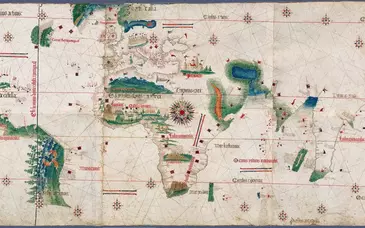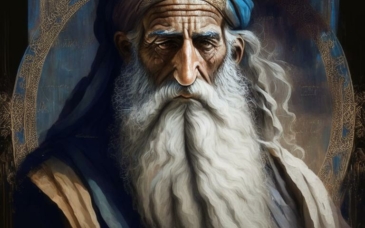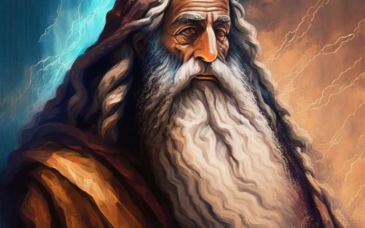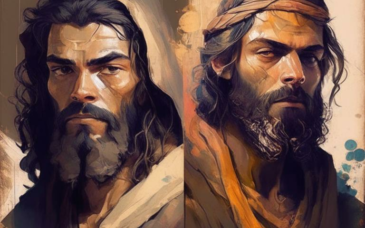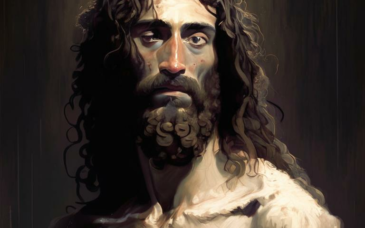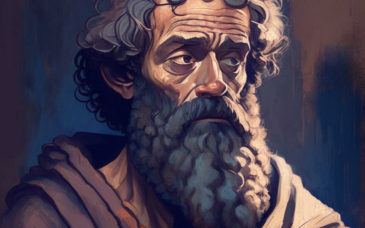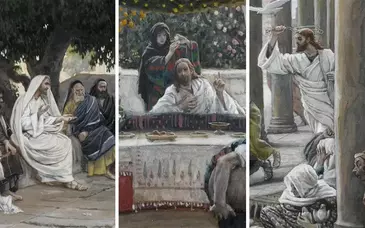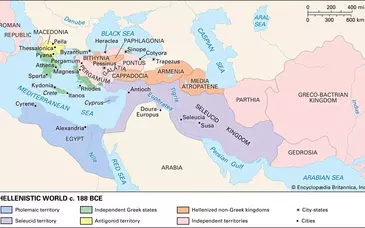The unification of Spain was by a different route than that of either France or England. The customary rivalry between the feudal aristocracy and the royal authority was complicated by another significant element - a religious crusade. National unification required the ejection of the Muslims, with their foreign religion and culture. Unity also called for the consolidation of several distinct Christian states.
During the long struggle to drive the Muslims from Spain, a mounting patriotism blended with a fanatical religious spirit. As early as the ninth century northern Spain became caught up in a religious zeal centering around Santiago de Compostela, reputed to be the burial site of the apostle St. James. His bones were enshrined in a great cathedral visited by thousands of pilgrims. Banners were consecrated there, and the battle cry of the Christian soldiers became "Santiago" (a contraction of Sante Iago, St. James' name in Spanish).
Another symbol of national awakening was an eleventh-century soldier of fortune, El Cid (Arabic for "lord"). His exploits against the Muslims thrilled Europe, and he became the hero of the great Spanish epic, Poema de Mio Cid. In the epic El Cid appears as a perfect Christian knight, although in reality he was an adventurer seemingly more interested in booty and power than in religion.
In 1212, at Las Navas de Tolosa, the Christians achieved a decisive victory over the Muslims. A few years later they captured first Cordova, whose great mosque was reconsecrated as a cathedral, and then Seville. The conquest of Seville effectively doubled the territory of the Spanish kingdom. By the end of the thirteenth century, when the reconquest halted, until the latter part of the fifteenth century, Moorish political control was confined to Granada. The Christian victors allowed their new Muslim subjects to enjoy their own religion and traditions. Muslim traders and artisans were protected because of their economic value, and Muslim cultureart in particularwas often adapted by the Christians.
